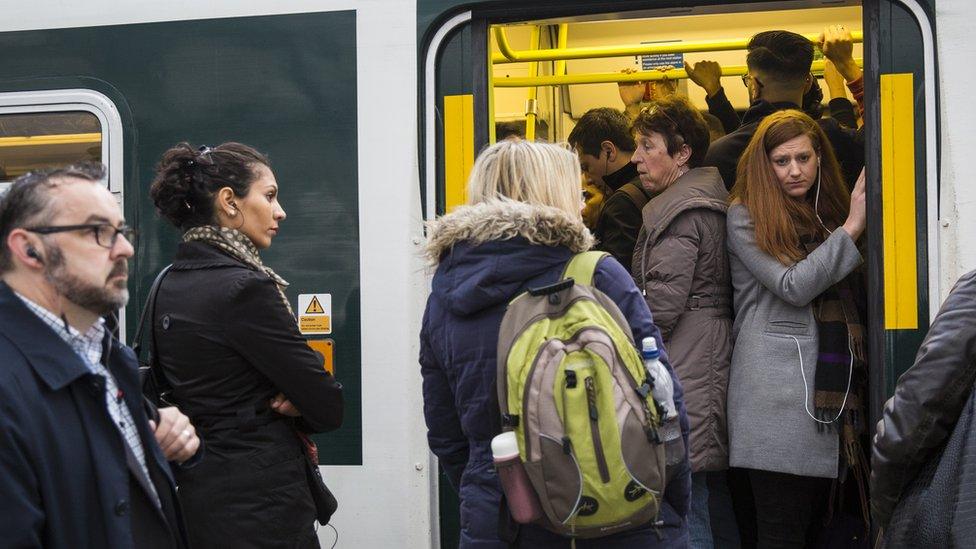Southern rail strike: What's it about?
- Published
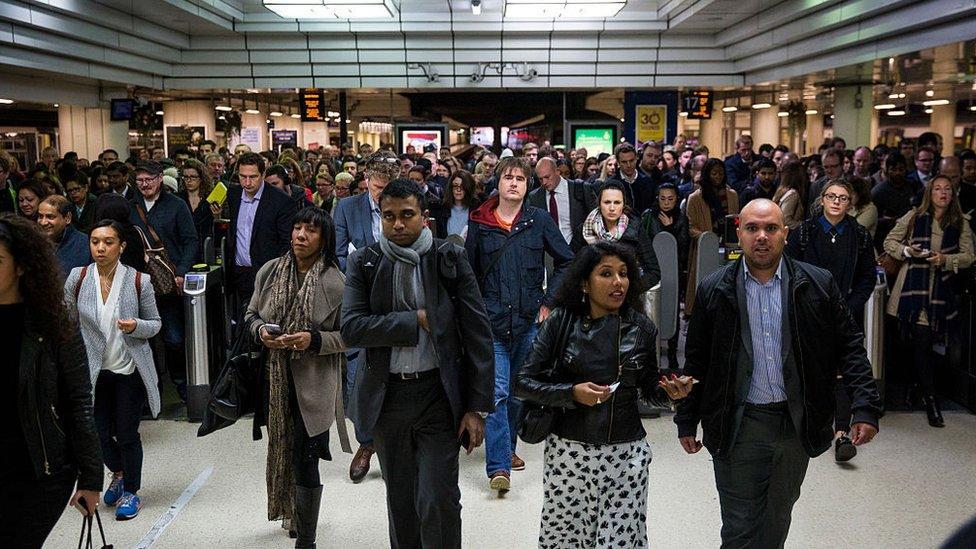
As Southern rail passengers prepare for yet another strike, many are asking: what's the dispute actually about?
Well, it's about safety, it's about jobs and it's about politics. Let's take them one at a time.
Safety
It's a bit "he says, she says" but bear with me, because it's not straightforward.
Southern wants to bring in something called driver-only-operated (DOO) trains where the driver, rather than the conductor, opens and closes the doors. A third of Britain's services already work that way, it's been around for 30 years and the rail safety regulator says it's safe, external. The whole London tube network is DOO.
Unions disagree. They say the on-board conductor/guard has a much better view of the doors and can stop people getting trapped.
I spoke to a driver about it and he told me that the view in the driver's cab on some of the older trains isn't great, especially at some stations.
He's driven tube trains and says they're different because they have much better cameras, both on the train and at the end of the platform.
Unions also see this as a long-term ploy to phase out a second person on services, which means no-one would be around to help out if the driver was ill or injured, or there's an emergency. Who'll escort people along the track after a crash?
But Southern guarantees it'll keep two people on each service, they just won't have the same "safety-critical" role. Southern is only able to keep this promise for the length of its franchise, which runs out in 2021.
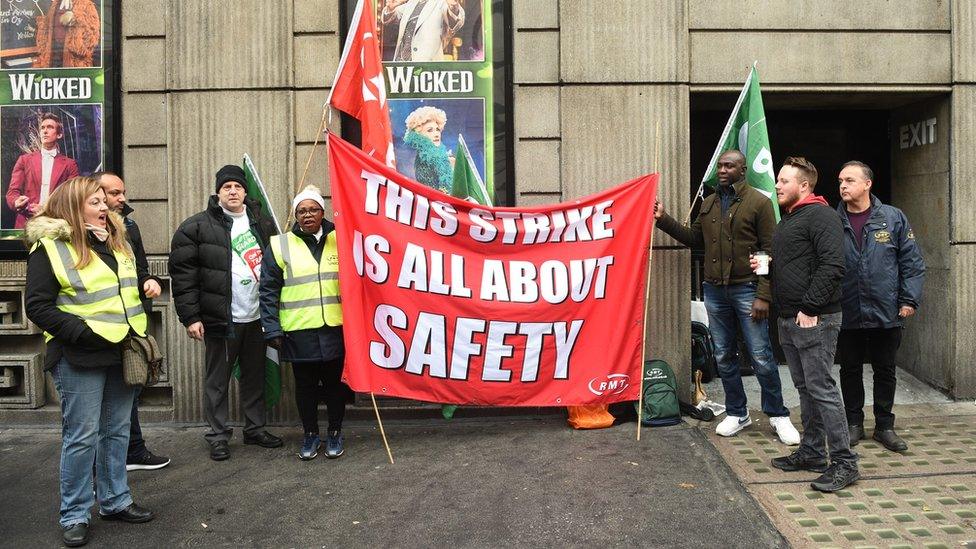
Jobs
The railway is very expensive to run. Taxpayers chip in about £4.8bn a year, and the vast majority of people don't even use trains.
Few will say it out loud, but one obvious way to reduce costs is to cut staff. The unions are convinced that the spread of DOO is part of a wider plan to slash jobs.
Southern has guaranteed that no-one will lose their job, or take a pay cut. The second person will now be free to help passengers, they say.
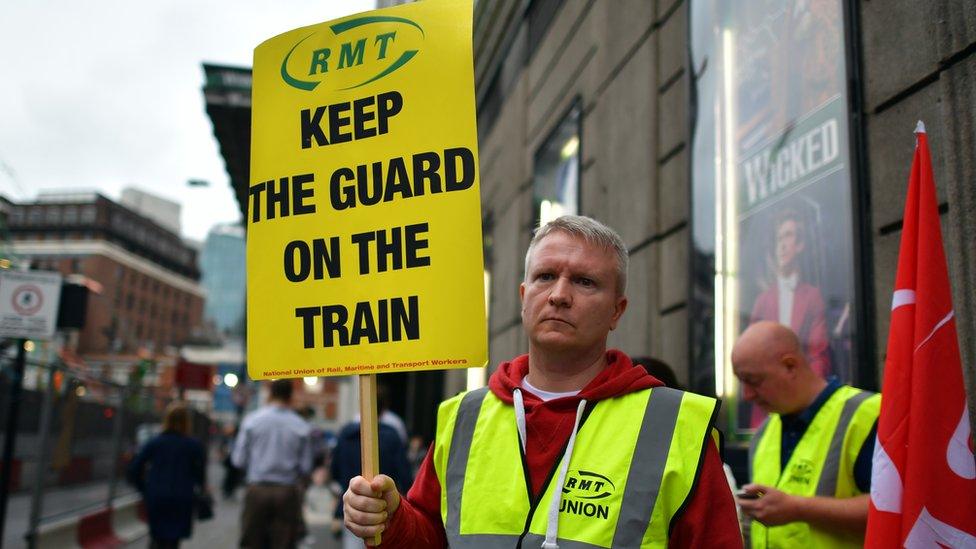
Politics
Southern's franchise isn't like any other. Normally, the government picks a company to run a line, and that company collects the money from fares. It also loses money if there are strikes or disruption.
But this deal is different. Ministers are paying Southern's parent company, GTR, to run services, while the government collects the fare money. So the cost of all the strikes and disruption is picked up by the government, not the train firm. (GTR is taking a huge reputational hit though, which comes at a price.)
That's why the unions have accused ministers of orchestrating this dispute behind the scenes; of pressuring GTR to stick to its guns and not compromise, to pave the way for similar staff arrangements across other franchises in future (see the next section, "the wider war").
When I met the Transport Secretary, Chris Grayling, last week he said that wasn't true. The unions are trying to turn it into a political battle, he says, because they want to make privatisation look bad, thus boosting the case for renationalising the railways.
He did suggest on the Today programme last week that he'd meet the RMT union if it called off the strikes.
By the way, the bill for compensation and lost fares so far is around £38m and counting, according to a letter sent from the DfT to the Transport Select Committee. Since then they've also set aside £15m to compensate season ticket holders.
It's all being picked up by the taxpayer, although the government counters that it's also getting money in from fares. As ever with the railways, who's paying what isn't very clear.
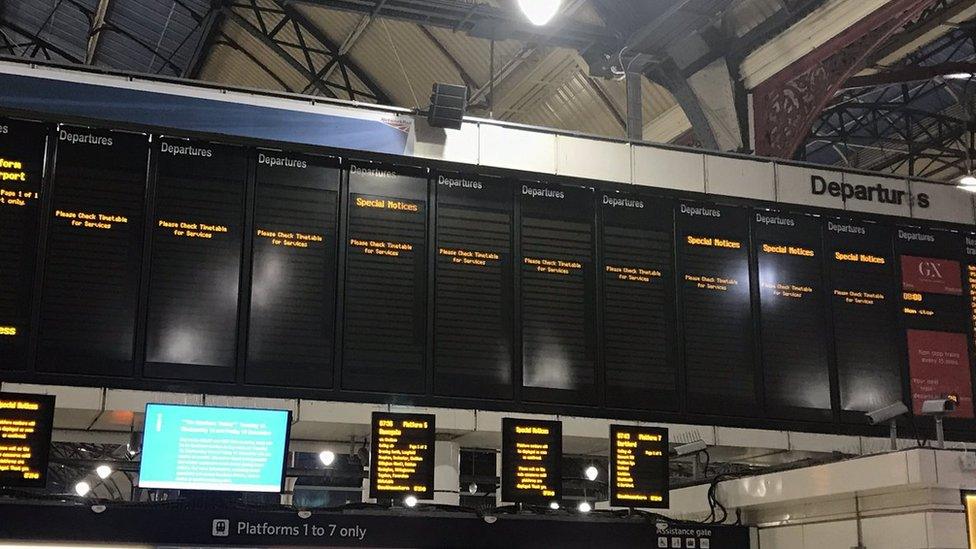
The wider war
Southern has become the critical battleground in a war over how trains are staffed in future.
Aslef and the RMT union joined forces in November 2015, external to draw a line in the sand. No more DOO.
Bear in mind, if these changes go through the RMT will have less power to stop trains if it calls strikes in future. Because services will be able to run without one of their conductors on board.
Whatever happens here will be reflected in future franchises as they take delivery of new DOO trains. I believe Northern is next.
No end in sight
Right now, I really can't see how this dispute will end. No-one's budging on the critical issue. No-one's even talking.
- Published13 December 2016
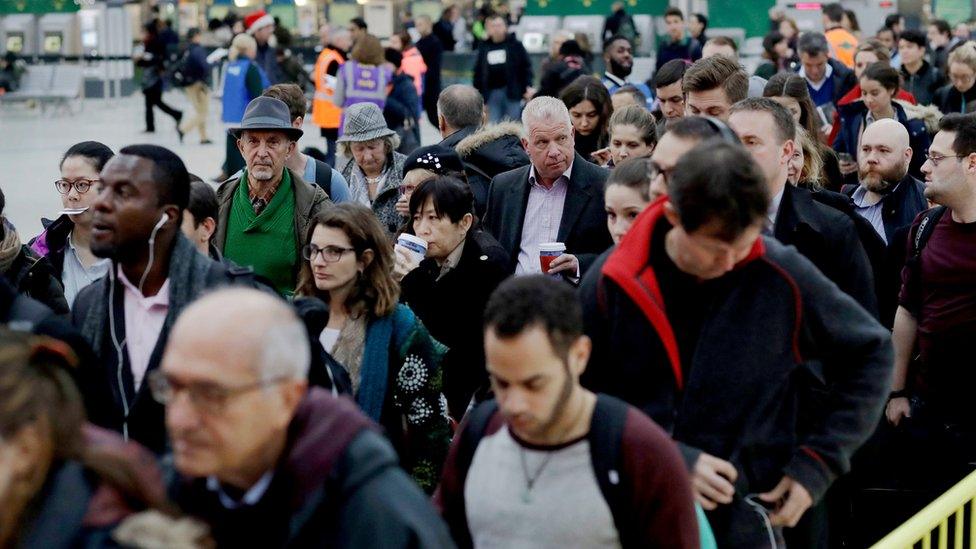
- Published19 January 2017
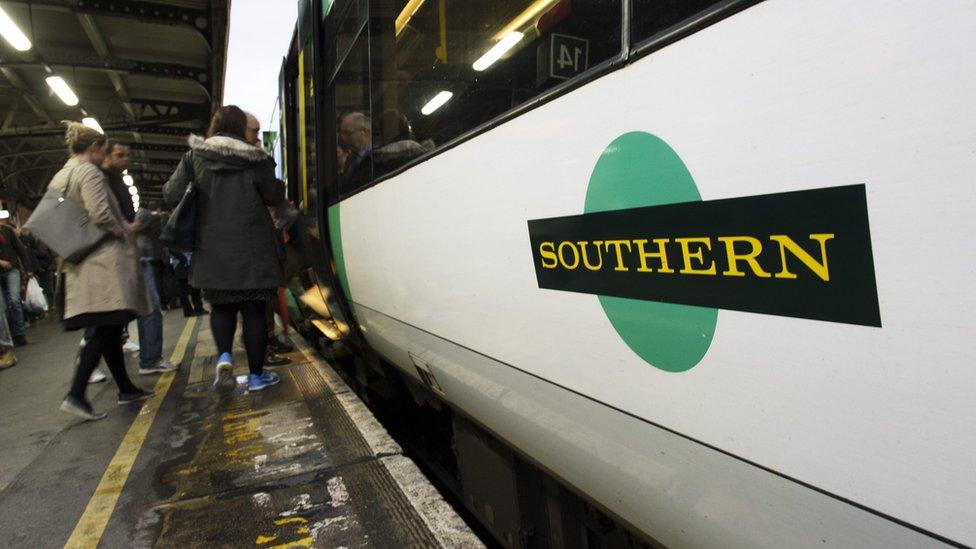
- Published12 December 2016
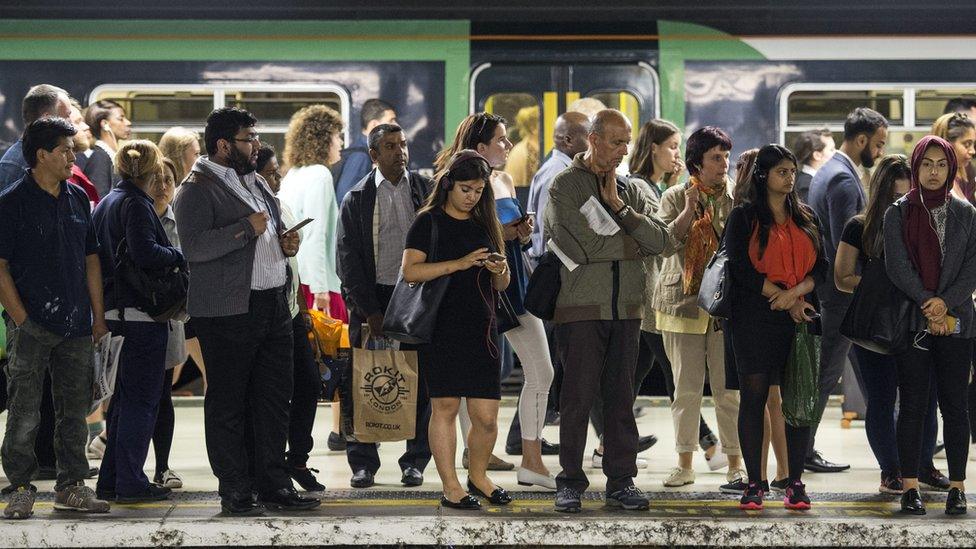
- Published9 December 2016
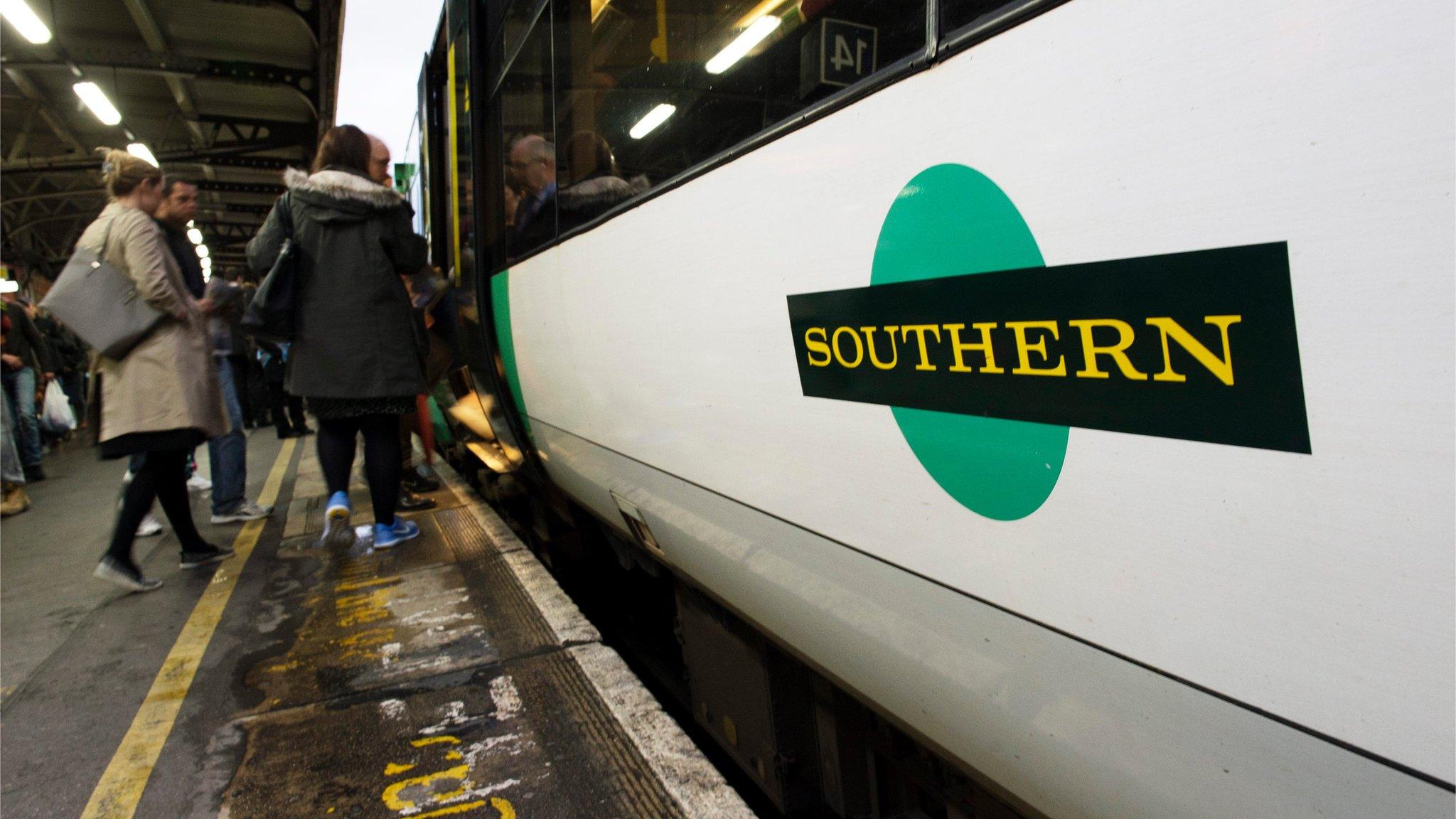
- Published8 December 2016
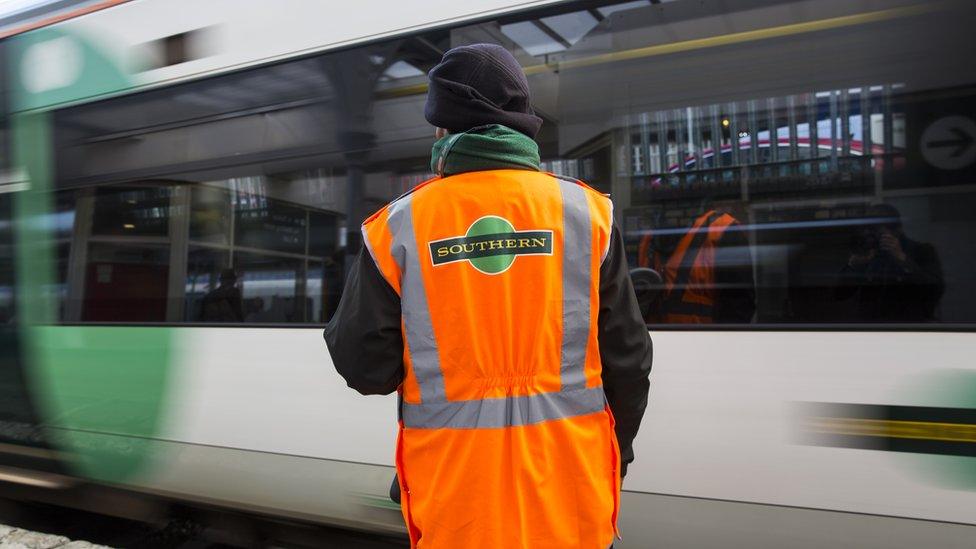
- Published6 December 2016

- Published2 December 2016
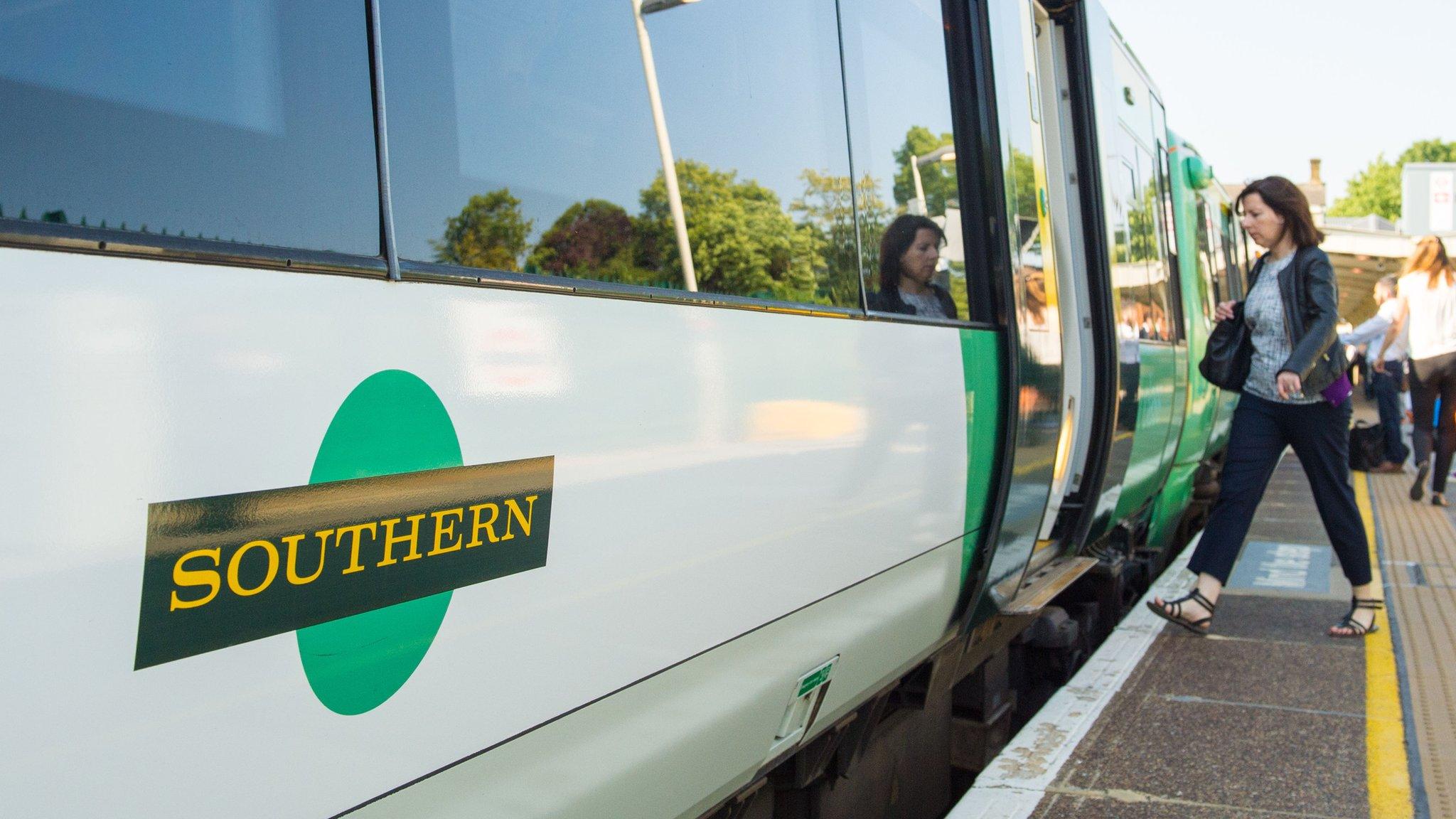
- Published2 December 2016
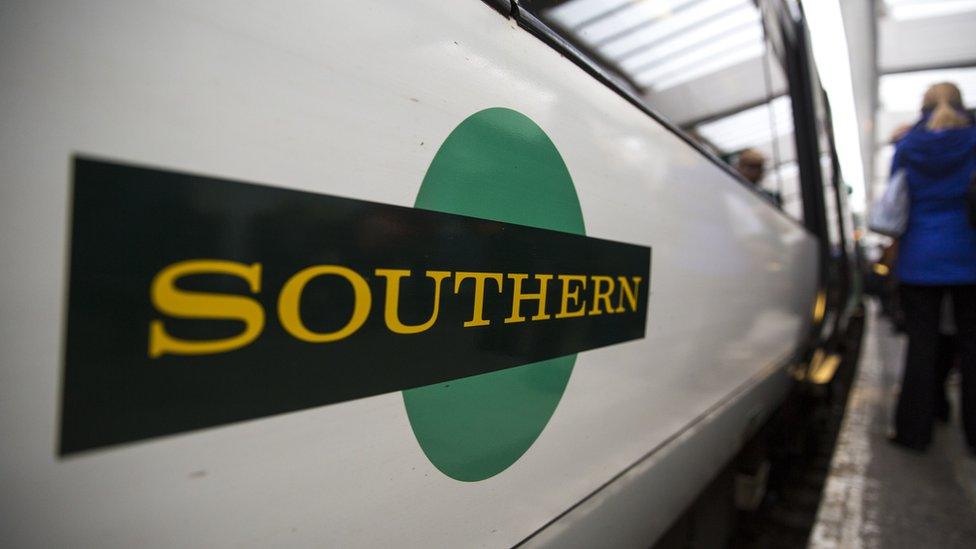
- Published4 November 2016
